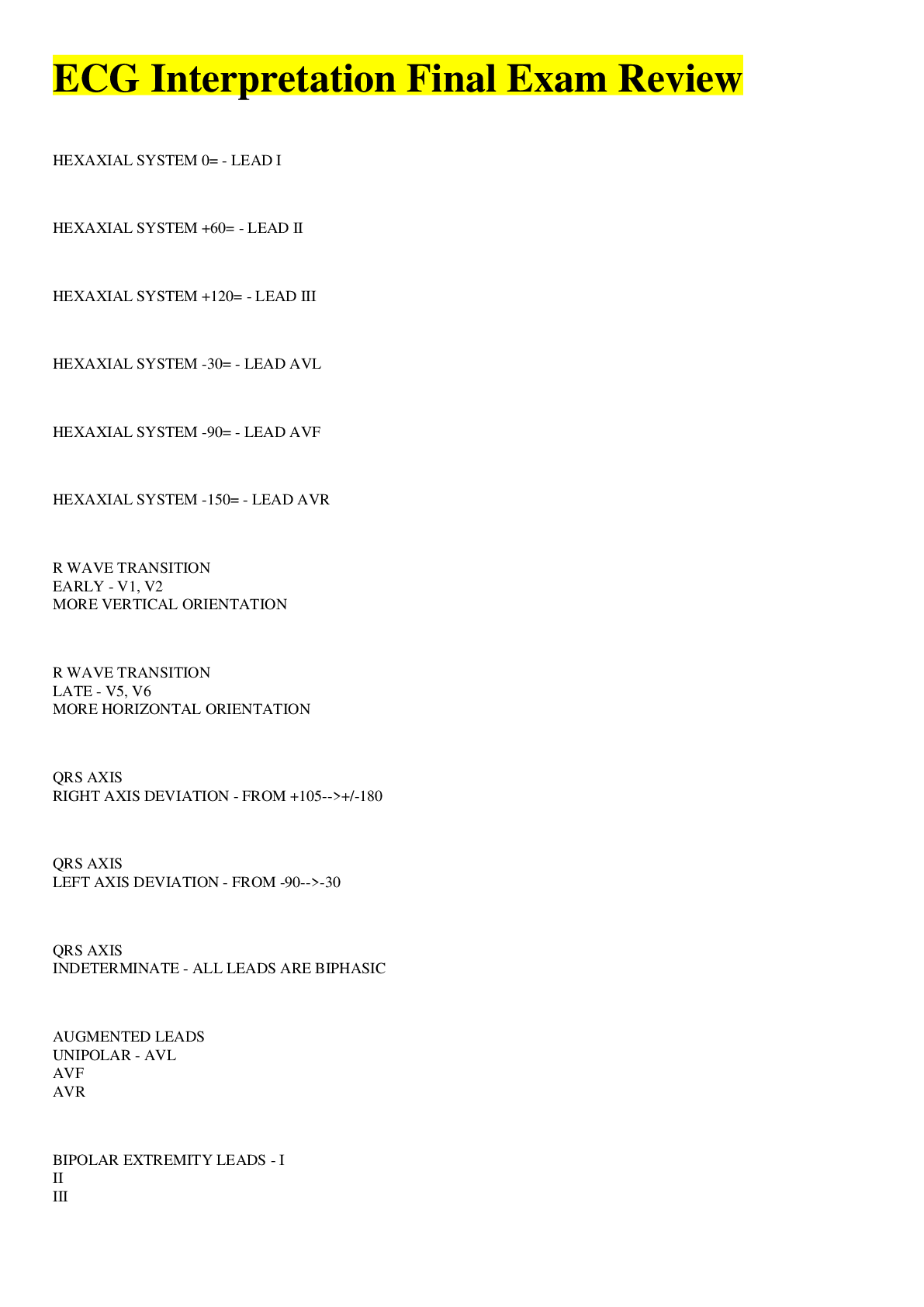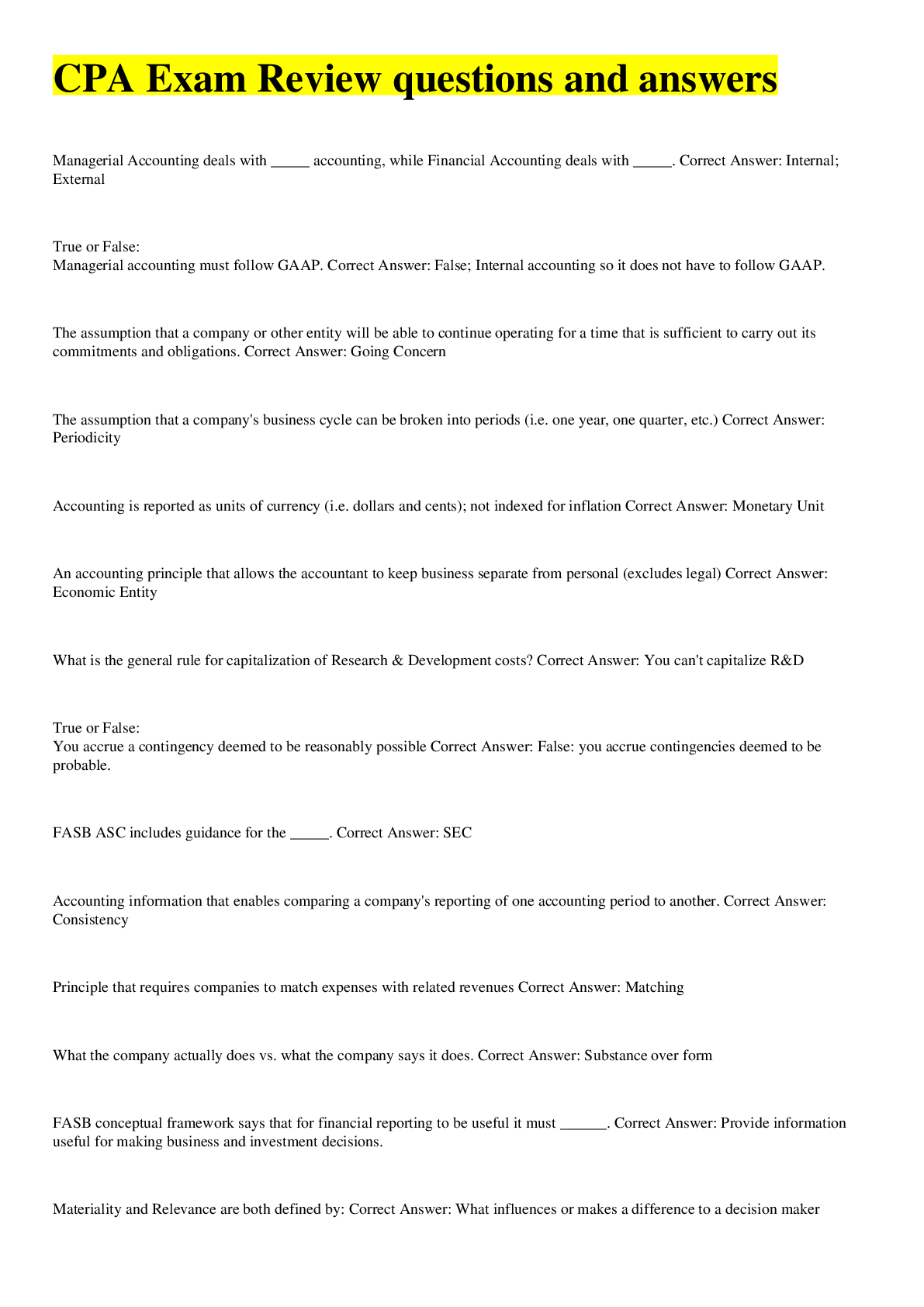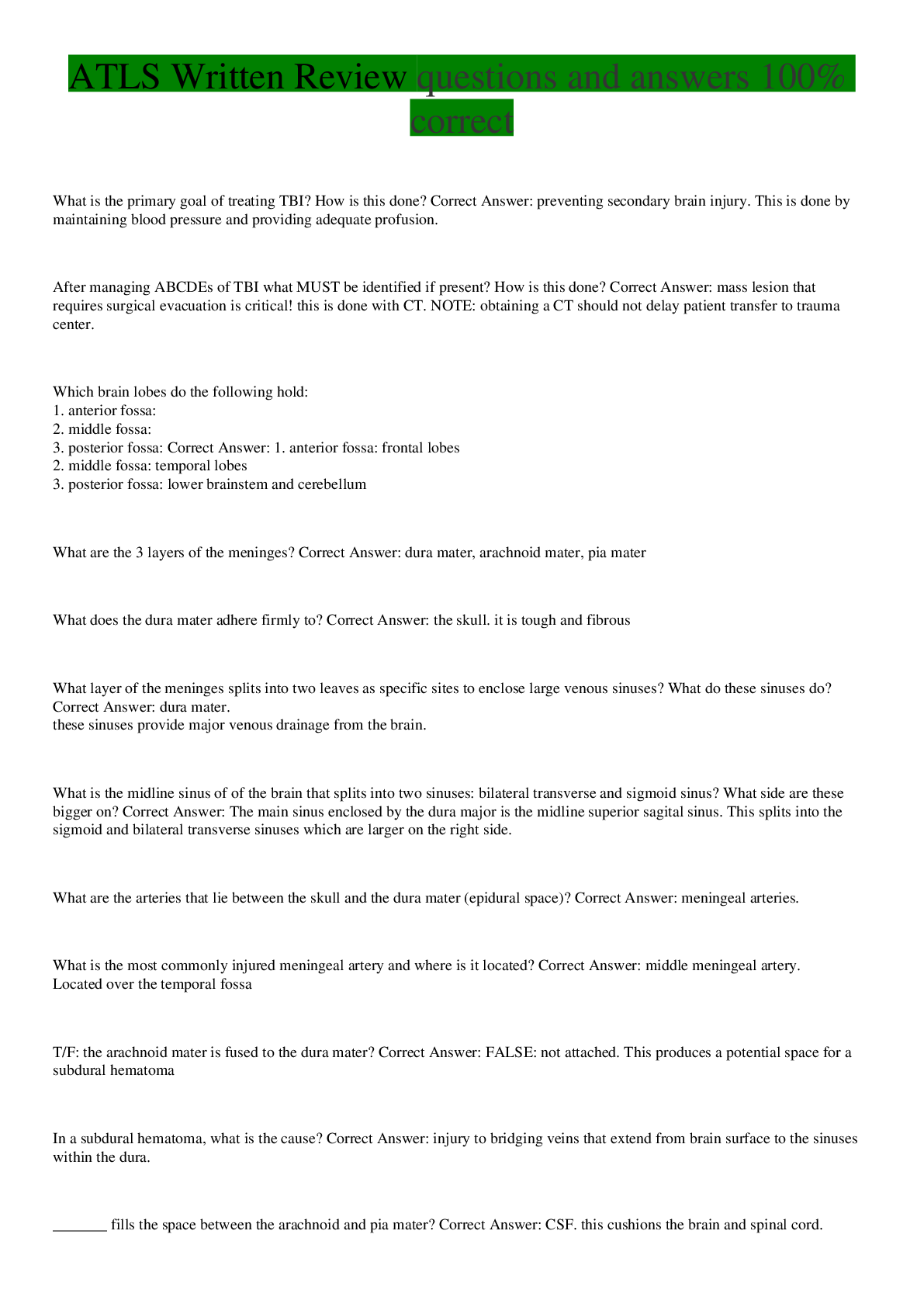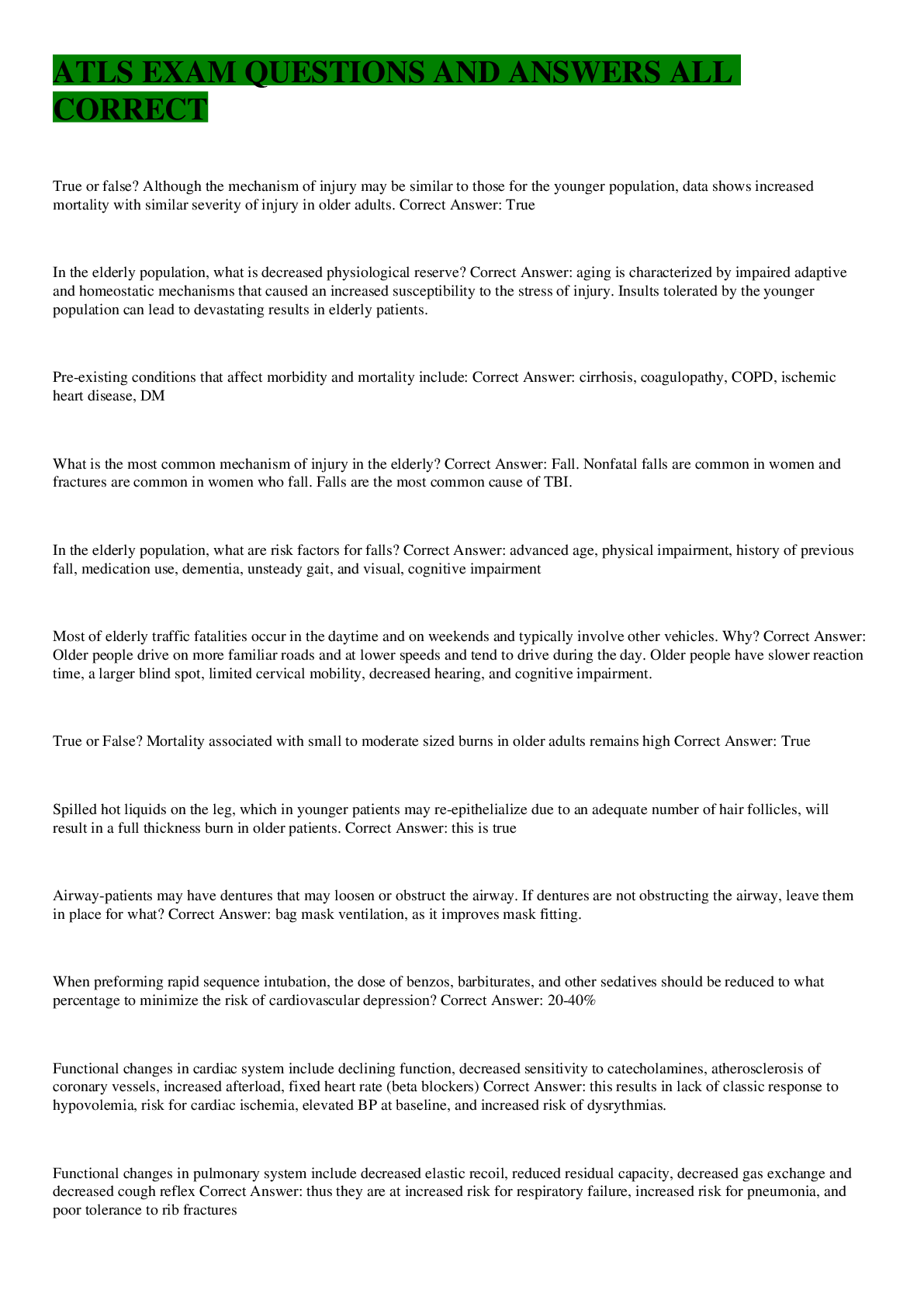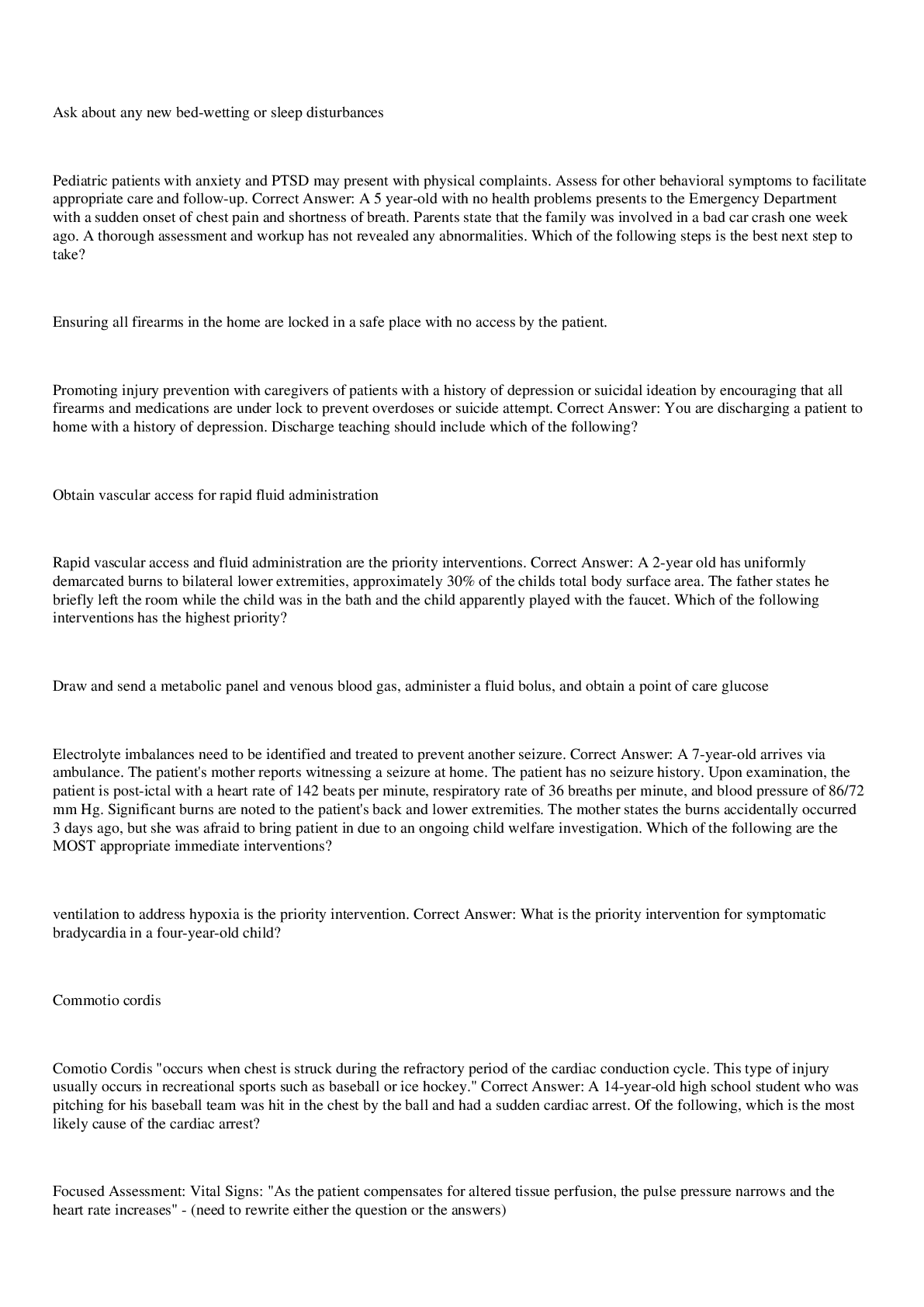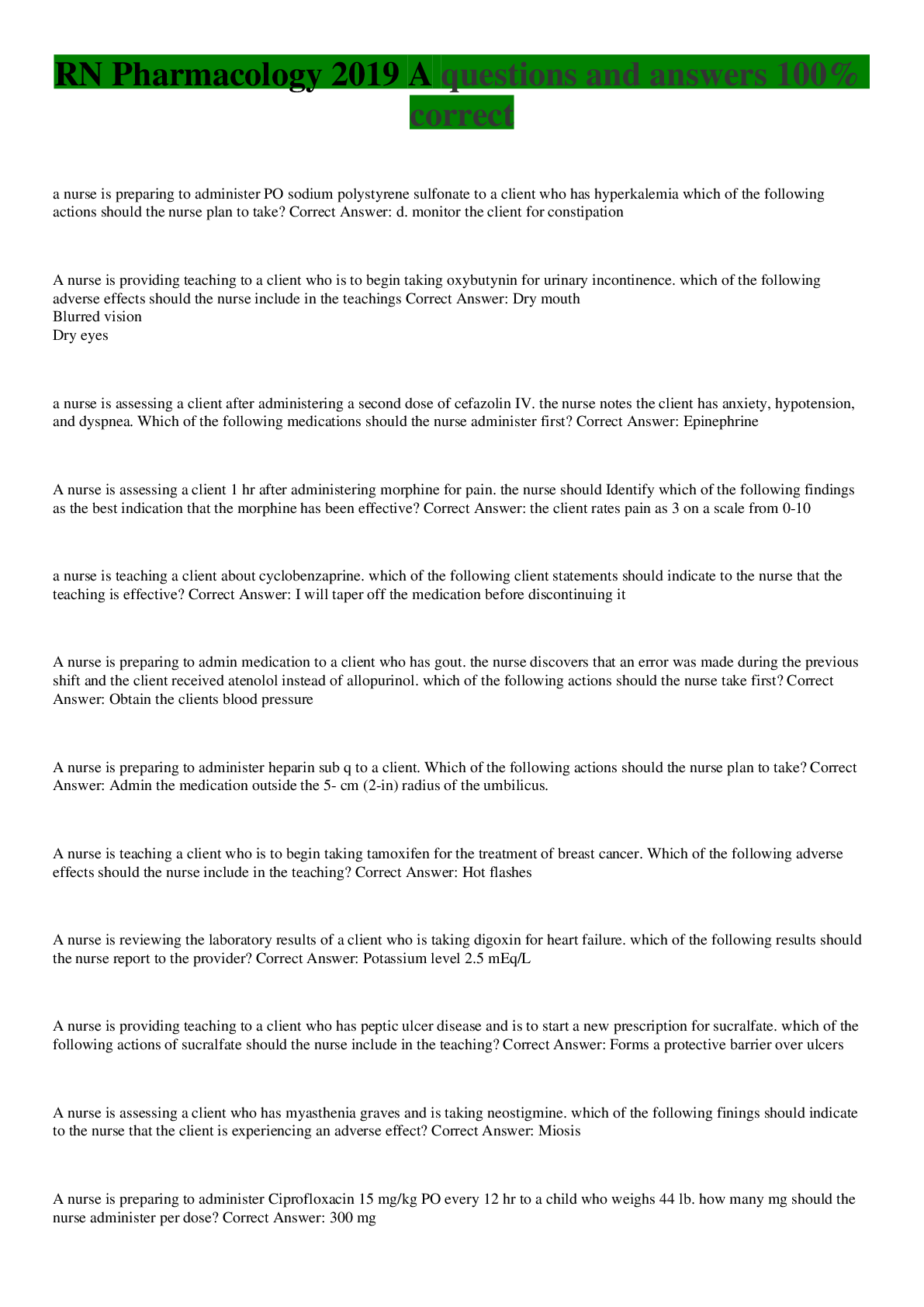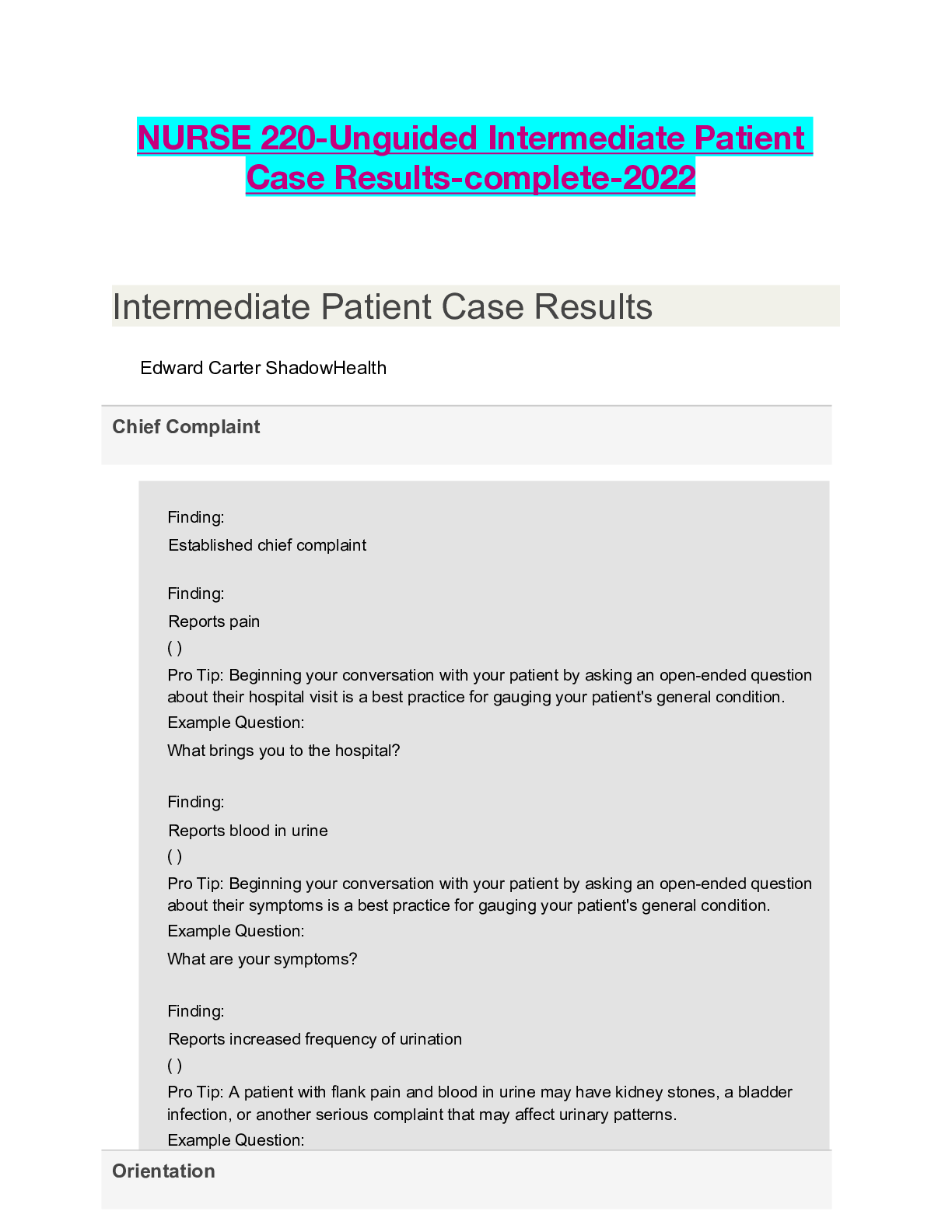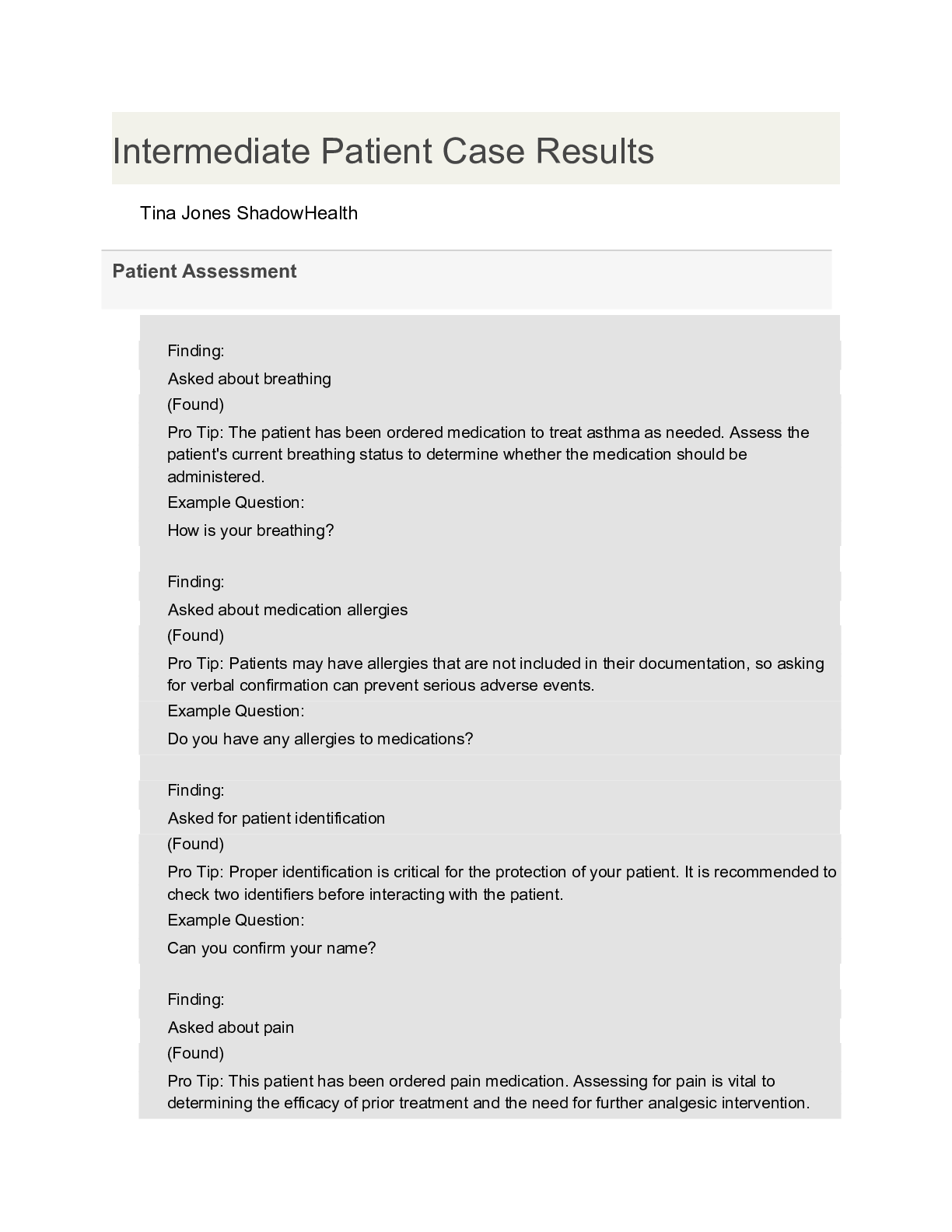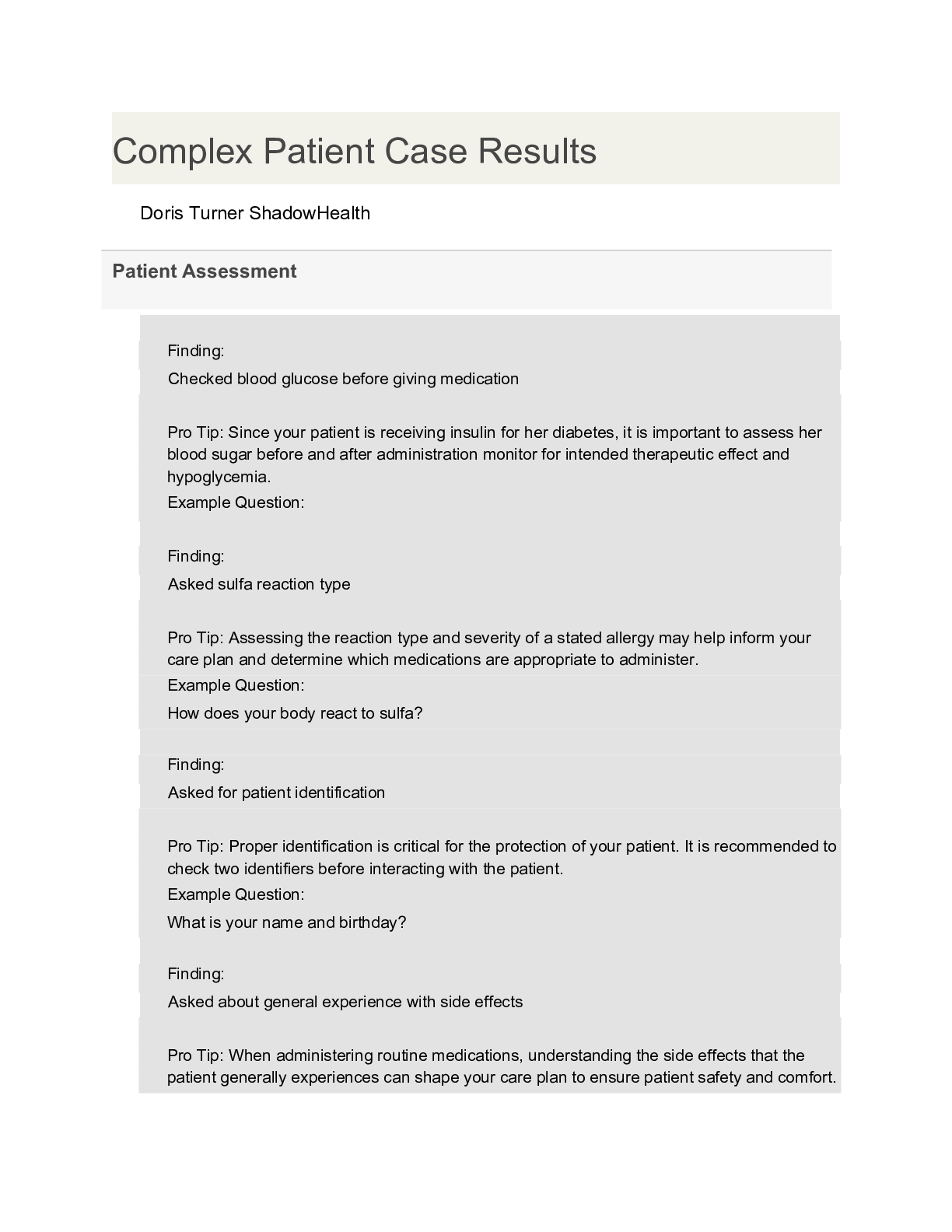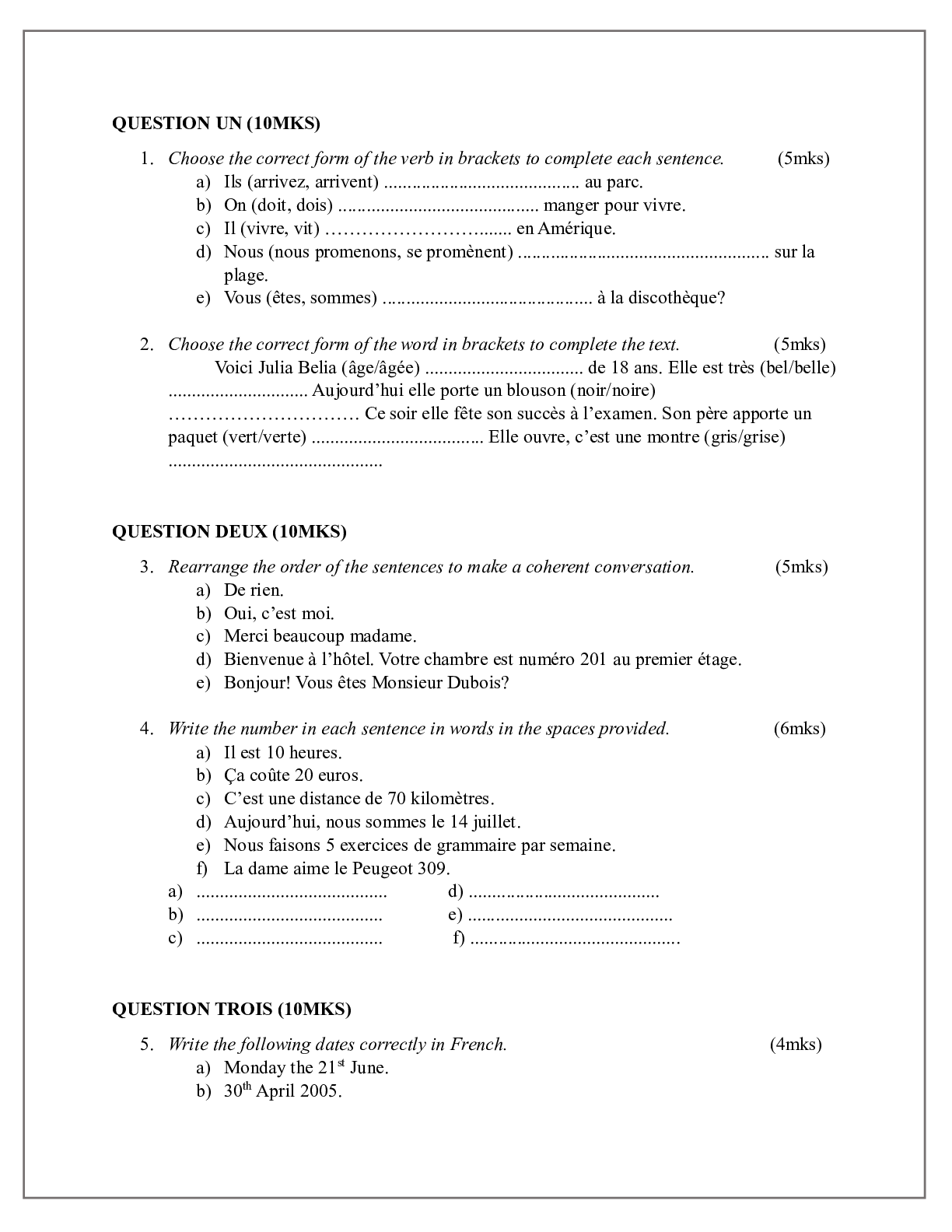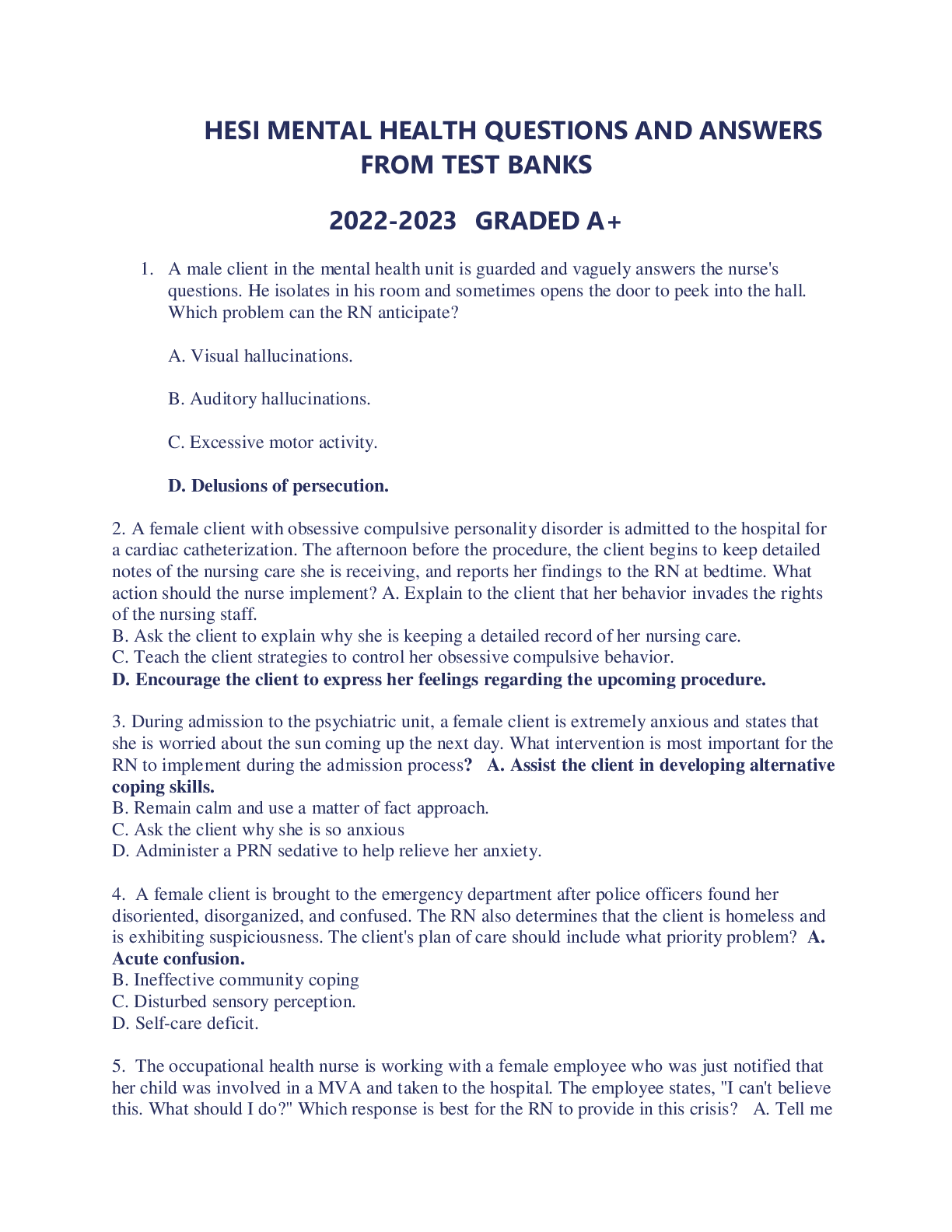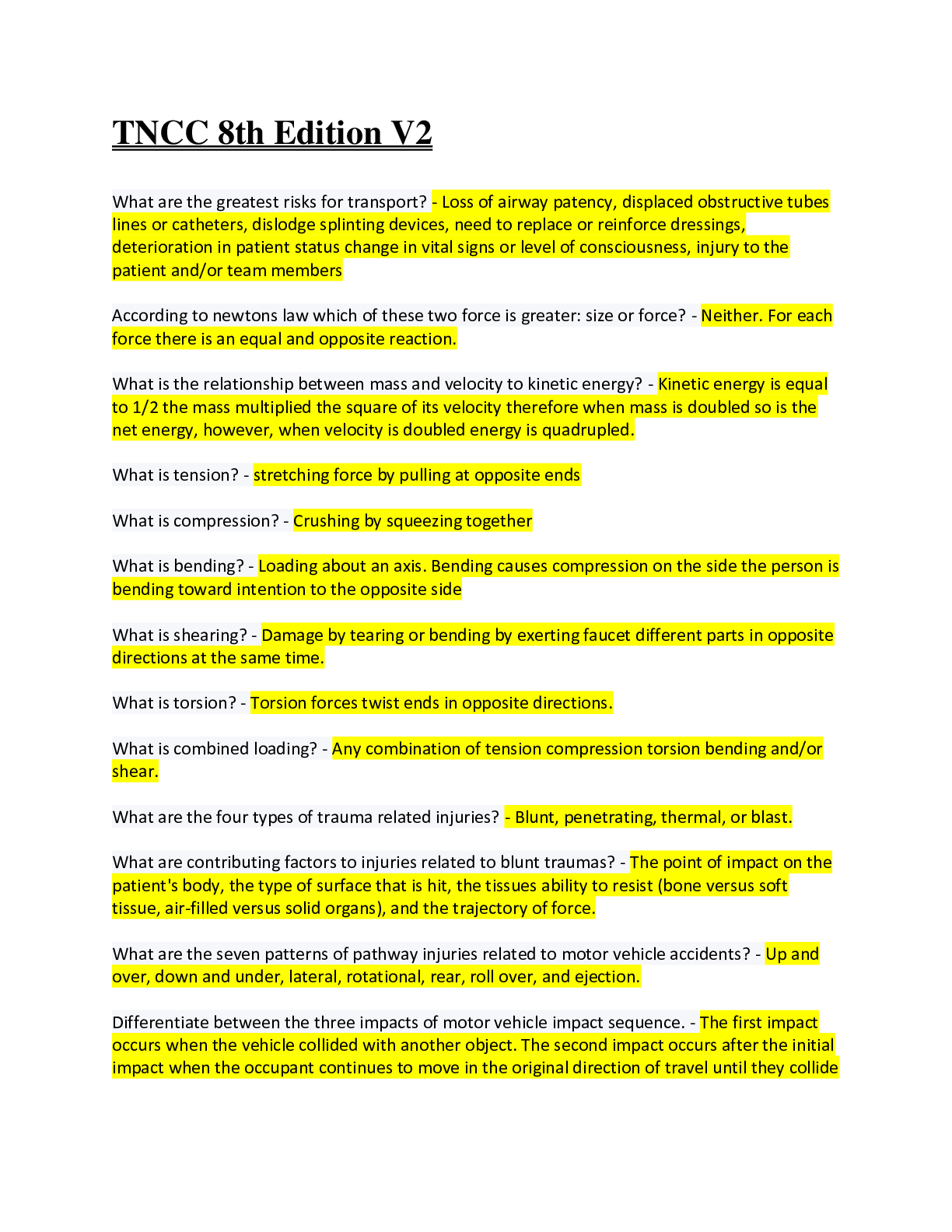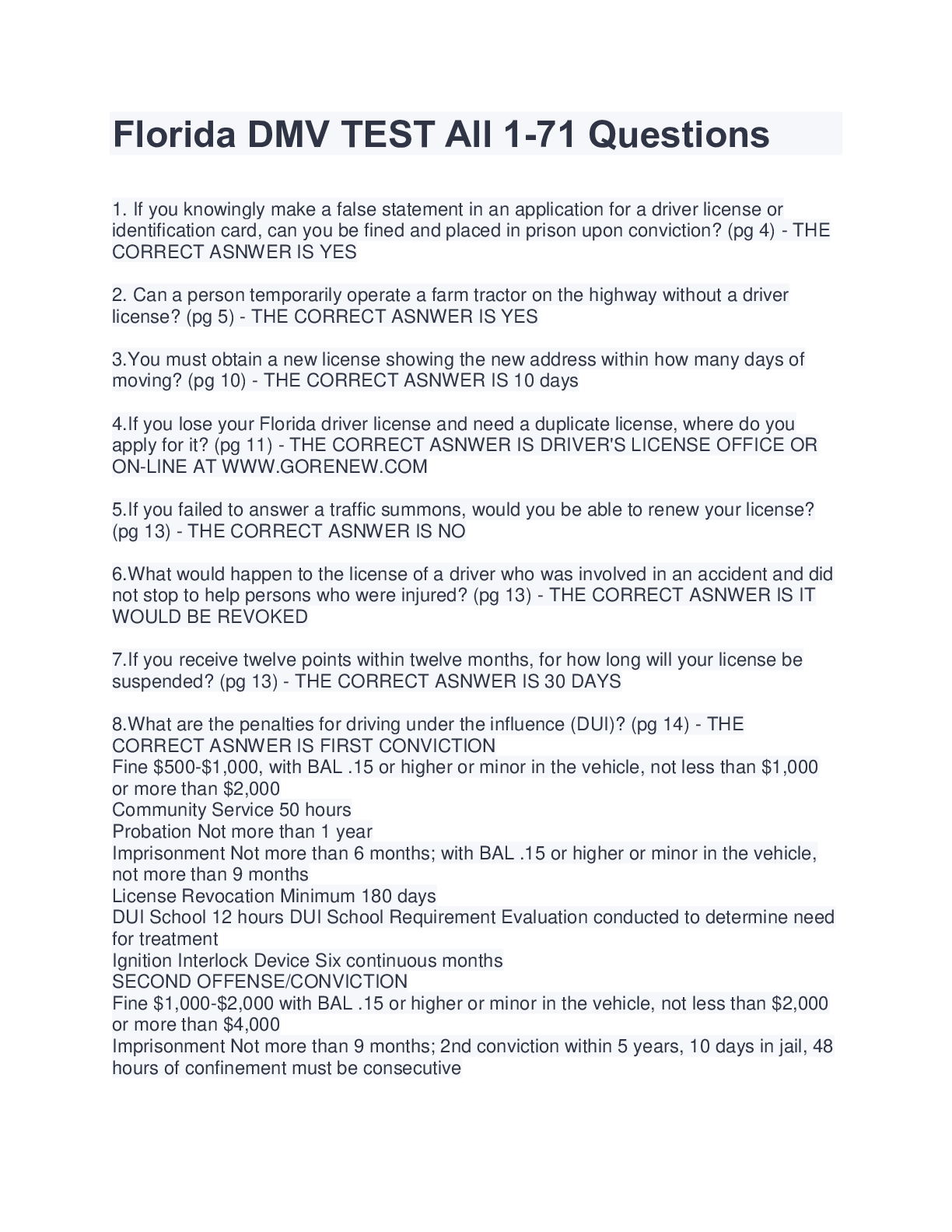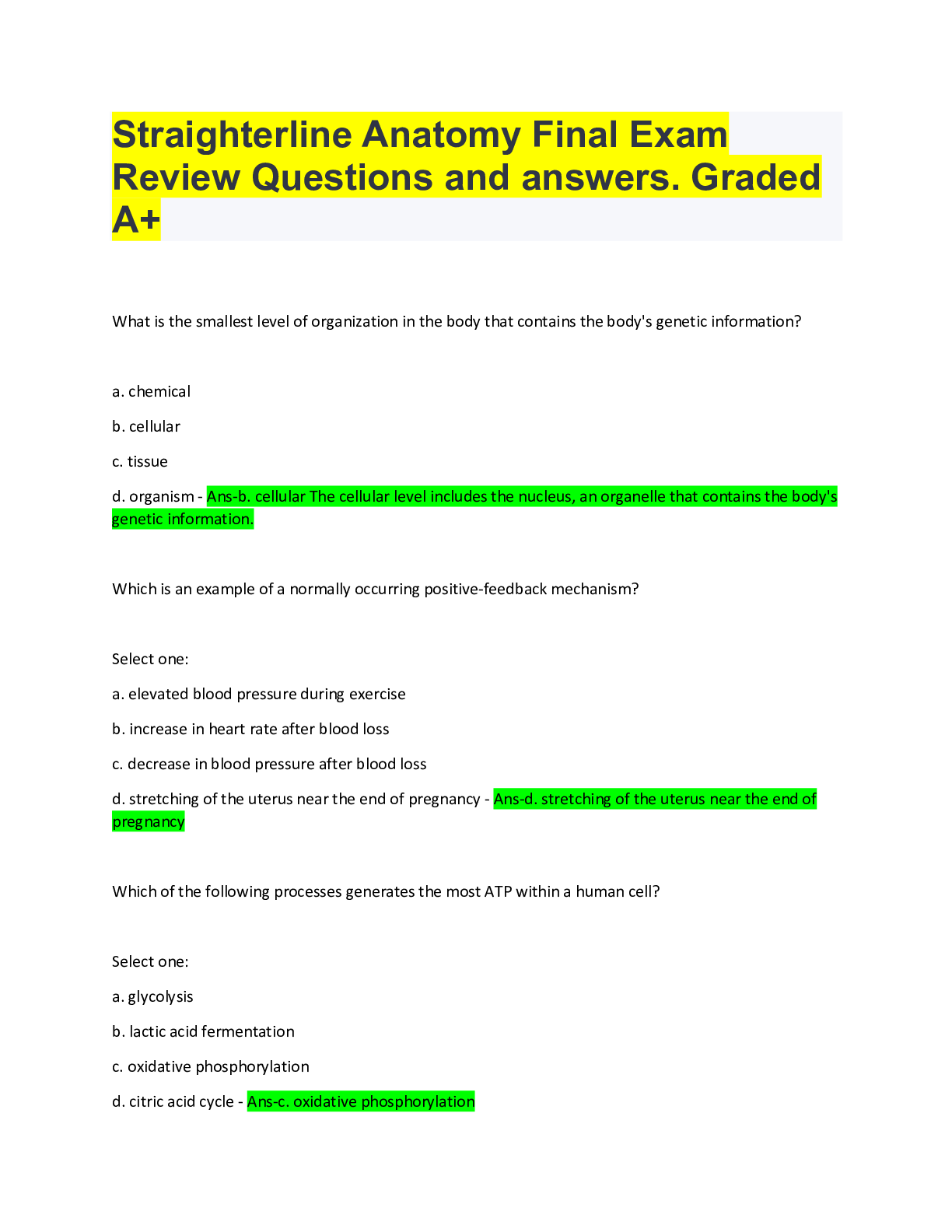Health Care > EXAM > Unguided Intermediate Patient Case Results EDWARD CARTER SHADOWHEALTH (All)
Unguided Intermediate Patient Case Results EDWARD CARTER SHADOWHEALTH
Document Content and Description Below
Intermediate Patient Case Results Edward Carter ShadowHealth Chief Complaint Finding: Established chief complaint Finding: Reports pain ( ) Pro Tip: Beginning your conversation with your patie... nt by asking an open-ended question about their hospital visit is a best practice for gauging your patient's general condition. Example Question: What brings you to the hospital? Finding: Reports blood in urine ( ) Pro Tip: Beginning your conversation with your patient by asking an open-ended question about their symptoms is a best practice for gauging your patient's general condition. Example Question: What are your symptoms? Finding: Reports increased frequency of urination ( ) Pro Tip: A patient with flank pain and blood in urine may have kidney stones, a bladder infection, or another serious complaint that may affect urinary patterns. Example Question: Have you had urinary symptoms? Orientation Unguided Intermediate Patient Case Results EDWARD CARTER SHADOWHEALTH Finding: Asked about orientation Finding: Oriented to own person (Available) Pro Tip: You should ask patients, especially geriatric ones or those on a potentially mind-altering medication, to state their name so you can determine their cognitive functioning. Example Question: Can you tell me who you are? Finding: Oriented to place (Available) Pro Tip: You should ask patients, especially geriatric ones or those on a potentially mind-altering medication, to identify where they are so you can determine their cognitive functioning. Example Question: Do you know where you are right now? Finding: Oriented to situation ( ) Pro Tip: You should ask patients, especially geriatric ones or those on a potentially mind-altering medication, to identify their reason for being here so you can determine their cognitive functioning. Example Question: Do you know why you are here today? Finding: Oriented to time (Available) Pro Tip: You should ask patients, especially geriatric ones or those on a potentially mind-altering medication, to identify the date and year so you can determine their cognitive functioning. Example Question: What is the date and year? History of Present Illness Finding: Asked about onset and duration of symptoms Finding: Reports pain began 3 days ago ( ) Pro Tip: Discovering how long ago the pain began is the first step in understanding whether the pain is chronic or acute. Example Question: When did your pain begin? Finding: Reports pain has gradually increased since onset (Available) Pro Tip: The way that pain changes over time can help you understand its causes and how to treat it. Example Question: Has your pain changed since the onset? Finding: Reports increased urinary frequency began 3 days ago (Available) Pro Tip: Polyuria and increased urinary urgency can be symptoms of several diseases, including kidney stones, bladder infections, or even uncontrolled diabetes. Example Question: How long have you had to urinate more? Finding: Reports pinkish urine starting early this morning (Available) Pro Tip: Asking about the onset of the blood in the patient's urine helps you understand its development as an emerging health problem. Example Question: When did you start seeing blood in your urine? Finding: Reports pain has been constant (Available) Pro Tip: Determining patterns of pain helps you understand patient context; constant pain can affect a patient's ability to answer questions or make decisions. Example Question: Is your pain constant? Finding: Followed up on urinary frequency Finding: Reports urinating about once an hour ( ) Pro Tip: Asking a patient with increased urinary frequency how often they use the bathroom allow you to assess the condition's potential causes and its affect on the patient. Example Question: How often do you urinate? Finding: Reports waking up to use the bathroom (Available) Pro Tip: Asking a patient with increased urinary frequency if they use the bathroom at night allow you to assess the condition's potential causes and its affect on the patient. Example Question: Do you have to wake up to urinate? Finding: Reports waking up four to five times a night to use the bathroom (Available) Pro Tip: Asking a patient with increased urinary frequency how often they use the bathroom at night allow you to assess the condition's potential causes and its affect on the patient. Example Question: How many times a night do you have to wake up to urinate? Finding: Asked about location of pain Finding: Reports pain is in lower left side (flank pain) ( ) Pro Tip: Establishing the location of a patient's pain can provide insight into its cause, and help you determine if the pain progresses or migrates. Example Question: Where is your pain? Finding: Denies radiating pain (Available) Pro Tip: Determining if a patient's pain radiates can indicate its cause or the course of an infection. Example Question: Does the pain radiate? Finding: Asked about characteristics of pain Finding: Describes pain as sharp and shooting ( ) Pro Tip: Determining how your patient describes the characteristics of the pain can be important data to support the cause of the pain. Example Question: How would you describe your pain? Finding: Asked about aggravating factors of pain Finding: Reports nothing makes the pain worse ( ) Pro Tip: Aggravating factors are conditions that worsen a patient's pain, such as activities of living like eating or movement. Identifying these conditions helps you avoid them while the patient is in your care. Example Question: Does anything make your pain wors [Show More]
Last updated: 1 year ago
Preview 1 out of 30 pages
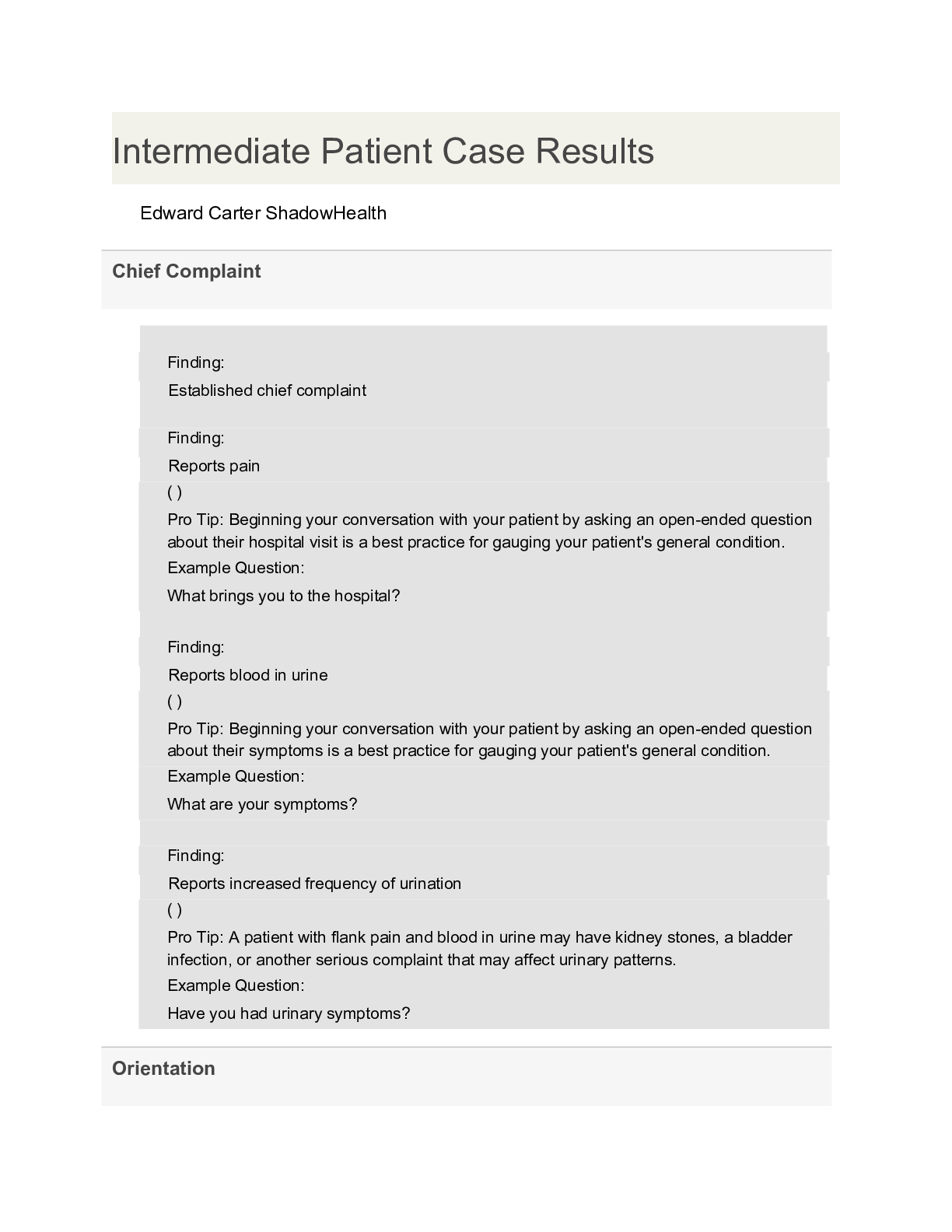
Reviews( 0 )
Document information
Connected school, study & course
About the document
Uploaded On
Aug 19, 2022
Number of pages
30
Written in
Additional information
This document has been written for:
Uploaded
Aug 19, 2022
Downloads
0
Views
35



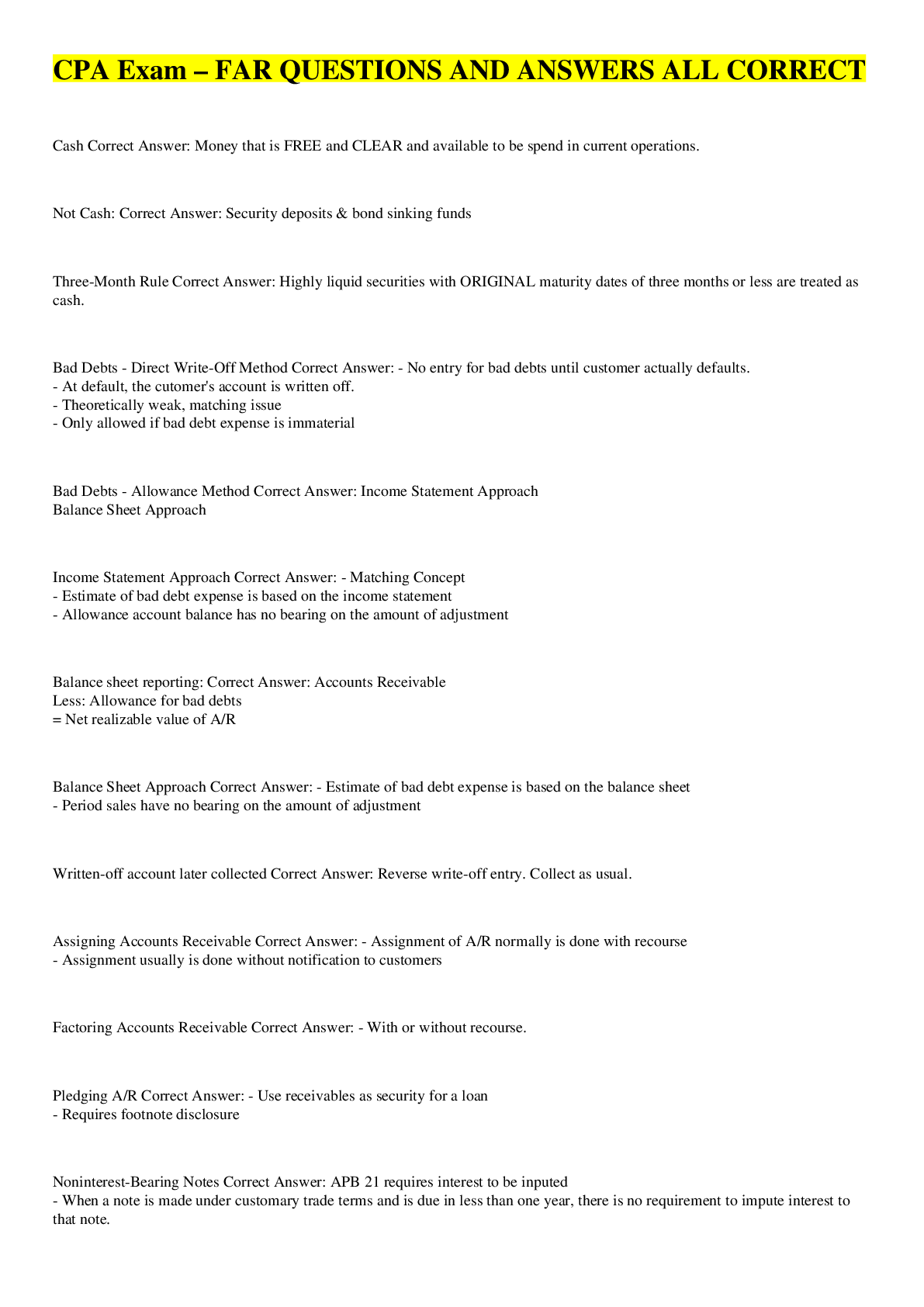

.png)
